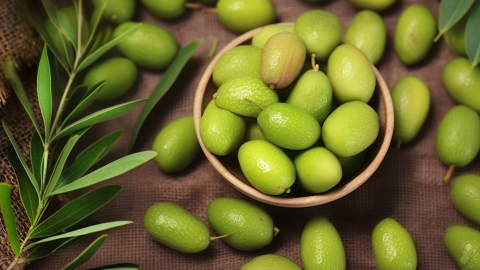Can persimmons and olives be eaten together?
Persimmons and olives can generally be eaten together, but it is recommended to consume them in moderation.

For most people, eating moderate amounts of persimmons and olives is safe, as their nutritional components do not conflict. Persimmons are rich in vitamin C, carotene, and dietary fiber, while olives contain abundant monounsaturated fatty acids and antioxidants. Consuming both foods together allows one to enjoy the nutritional value and health benefits each provides. Both persimmons and olives are nutrient-rich foods, and eating them together can supply various nutrients and energy to the body.
Although persimmons and olives can be consumed together, excessive intake at one time should be avoided. Eating too much may increase the burden on the gastrointestinal tract, potentially causing indigestion. After eating persimmons, it is not advisable to drink yogurt, as it may lead to gastrointestinal reactions such as abdominal pain and diarrhea. Olives are particularly high in fiber and should not be consumed with other fiber-rich foods, as this may affect digestion.
In daily diets, maintaining a balanced dietary structure and diversifying food intake can help sustain good health.





